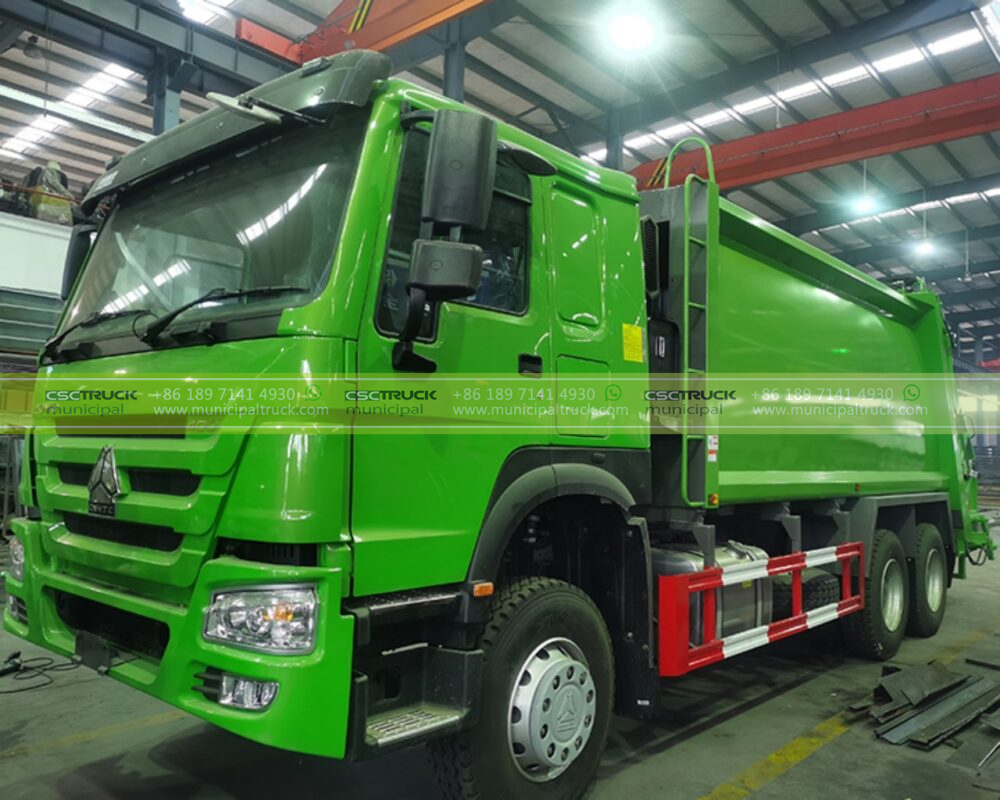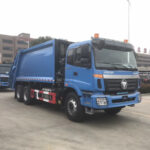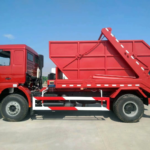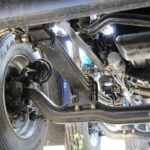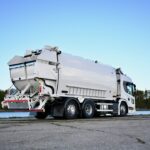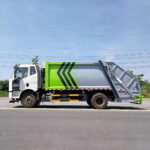In the modern world, efficient waste management is a pressing concern. As our urban areas continue to grow, so does the amount of waste we generate. Cities around the globe are grappling with the challenge of collecting and disposing of this waste sustainably and cost-effectively. Among the innovations that have emerged to tackle this issue, compactor garbage trucks stand out as a remarkable solution. These specialized vehicles have revolutionized waste disposal by streamlining the collection process and reducing the environmental impact of garbage removal.
The Challenge of Urban Waste
The growth of urban areas has led to a substantial increase in waste generation. According to the World Bank, global waste generation is expected to increase by 70% by 2050. This surge in waste poses several challenges, including increased strain on landfill capacity, environmental degradation, and higher costs for waste management. Addressing these challenges is crucial for the well-being of our cities and the planet.
The Birth of Compactor Garbage Trucks
Compactor garbage trucks, also known as compactors or compacting garbage trucks, have been instrumental in addressing the challenges of urban waste management. These specialized vehicles were developed to streamline the process of waste collection and disposal.
The idea behind compactor garbage trucks is simple yet effective: to compress waste materials, thereby reducing their volume and making more space available for additional waste. This compression not only maximizes the use of available space within the truck but also reduces the frequency of trips to the landfill or disposal site, saving time, fuel, and labor costs.
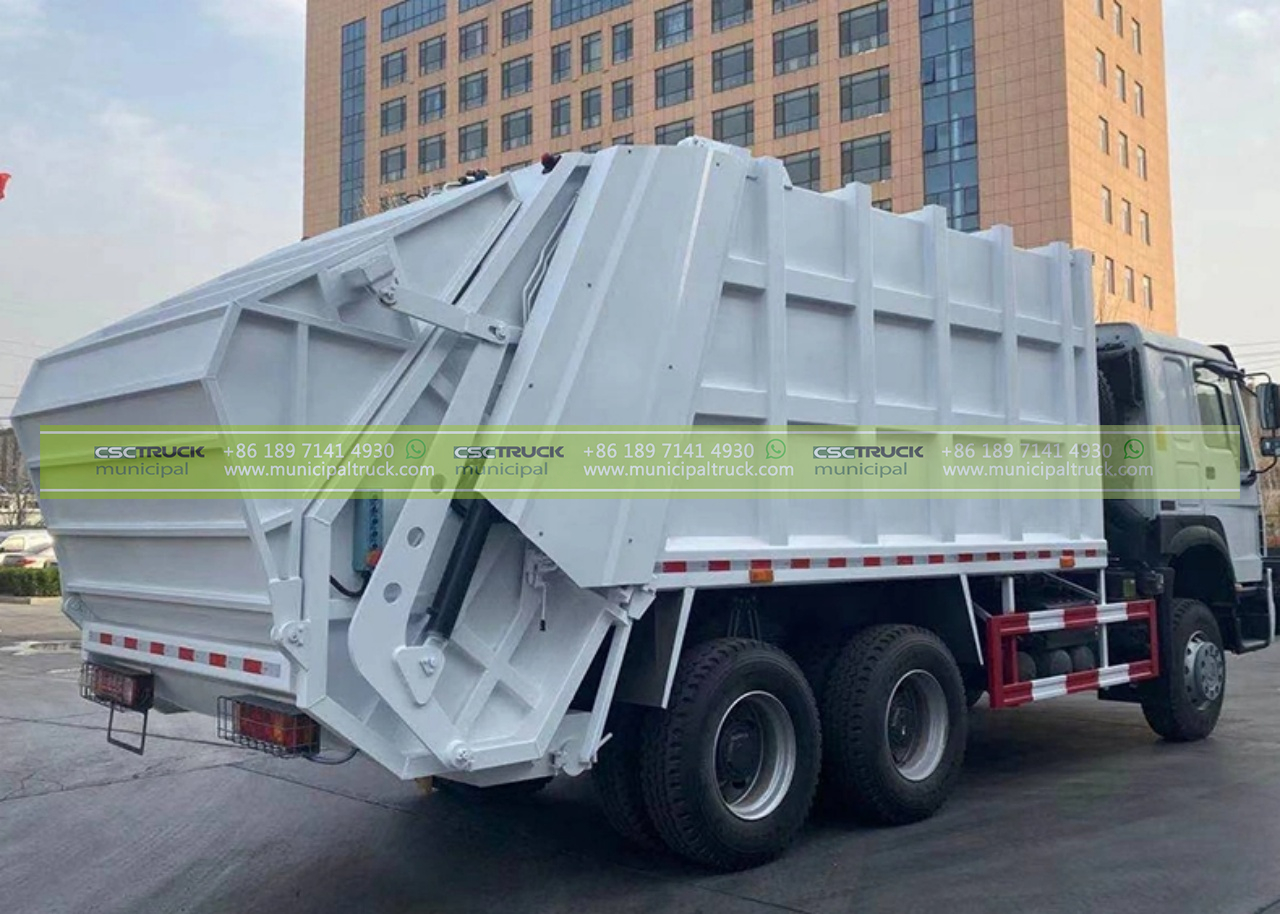
How Compactor Garbage Trucks Work
Compactor garbage trucks employ a hydraulic compaction system to compress waste materials. Here’s how they work:
1. Collection: The process begins with waste collection. Garbage collectors load waste into the compactor truck’s hopper, which is a large opening at the rear or side of the vehicle.
2. Compaction: Once the hopper is filled to a certain level, the compaction process begins. A hydraulic press inside the truck compacts the waste, reducing its volume significantly. This compression is what sets compactor trucks apart from conventional garbage trucks.
3. Loading: After compaction, the waste is pushed further into the truck’s body, creating more space for additional garbage.
4. Transportation: When the truck is full or has reached its designated capacity, it transports the compacted waste to a landfill, recycling facility, or waste-to-energy plant for final disposal.
Advantages of Compactor Garbage Trucks
The use of compactor garbage trucks offers numerous advantages that make them a preferred choice for many municipalities and waste management companies:
1. Increased Capacity
One of the primary benefits of compactor trucks is their ability to hold a larger volume of waste compared to traditional garbage trucks. This means fewer trips to the disposal site, resulting in reduced fuel consumption and lower operating costs.
2. Improved Hygiene and Aesthetics
Compactor trucks are equipped with sealed containers that prevent waste from spilling or blowing out during transportation. This not only helps maintain a cleaner and more hygienic environment but also enhances the aesthetics of the city by reducing litter.
3. Environmental Benefits
Reducing the number of trips to the disposal site has a positive environmental impact. It lowers greenhouse gas emissions, decreases traffic congestion, and minimizes wear and tear on road infrastructure.
4. Cost Savings
While the initial investment in compactor garbage trucks may be higher than traditional trucks, the long-term cost savings are substantial. Reduced fuel consumption, fewer maintenance requirements, and lower labor costs contribute to significant overall savings.
5. Enhanced Efficiency
Compactor garbage trucks streamline the waste collection process, allowing for quicker and more efficient garbage pickup. This is especially crucial in densely populated urban areas with tight schedules and limited road access.
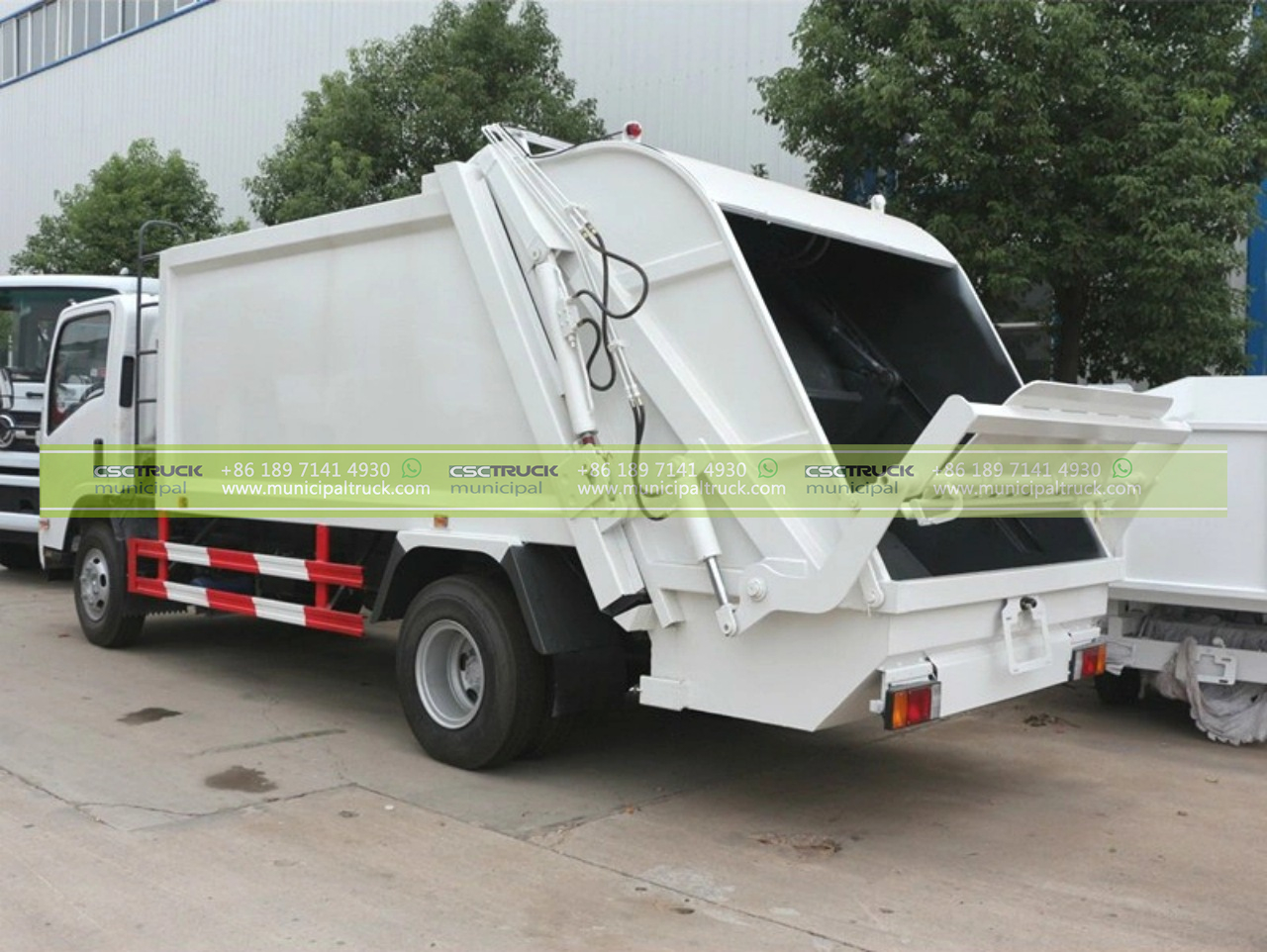
Varieties of Compactor Garbage Trucks
Compactor garbage trucks come in various configurations to meet the specific needs of different waste management operations. Some of the common types include:
1. Rear Loader Compactors
Rear loader compactors are the most common type of compactor garbage trucks. They are equipped with a rear-loading mechanism, making them suitable for residential and commercial waste collection. These trucks are often used in neighborhoods and commercial districts.
2. Front Loader Compactors
Front loader compactors feature a front-loading mechanism and are typically used for larger containers and dumpsters. They are commonly seen servicing industrial and commercial areas, where larger waste bins are used.
3. Side Loader Compactors
Side loader compactors have a side-loading mechanism, making them ideal for areas with narrow streets or limited access. They are often used in densely populated urban areas and in situations where maneuverability is essential.
The Future of Compactor Garbage Trucks
As cities continue to grow and the global waste problem intensifies, the role of compactor garbage trucks in waste management is poised to expand further. To meet the increasing demands for sustainability, new technologies are being integrated into these vehicles. These advancements include:
1. Smart Sensors
Many modern compactor garbage trucks are equipped with smart sensors that monitor waste levels and compaction rates. This data can be used to optimize collection routes, improve efficiency, and reduce operating costs.
2. Alternative Fuels
To reduce their environmental footprint, some compactor garbage trucks are transitioning from traditional diesel engines to alternative fuels like compressed natural gas (CNG) or electric power. These cleaner energy sources contribute to lower emissions and a greener fleet.
3. Enhanced Recycling Features
Incorporating recycling compartments within compactor garbage trucks is becoming increasingly common. This allows for the separation of recyclable materials from general waste during collection, promoting recycling and reducing the volume of waste sent to landfills.
4. Autonomous Operation
The concept of autonomous or semi-autonomous compactor garbage trucks is also on the horizon. These vehicles could reduce the need for human drivers and improve safety and efficiency.
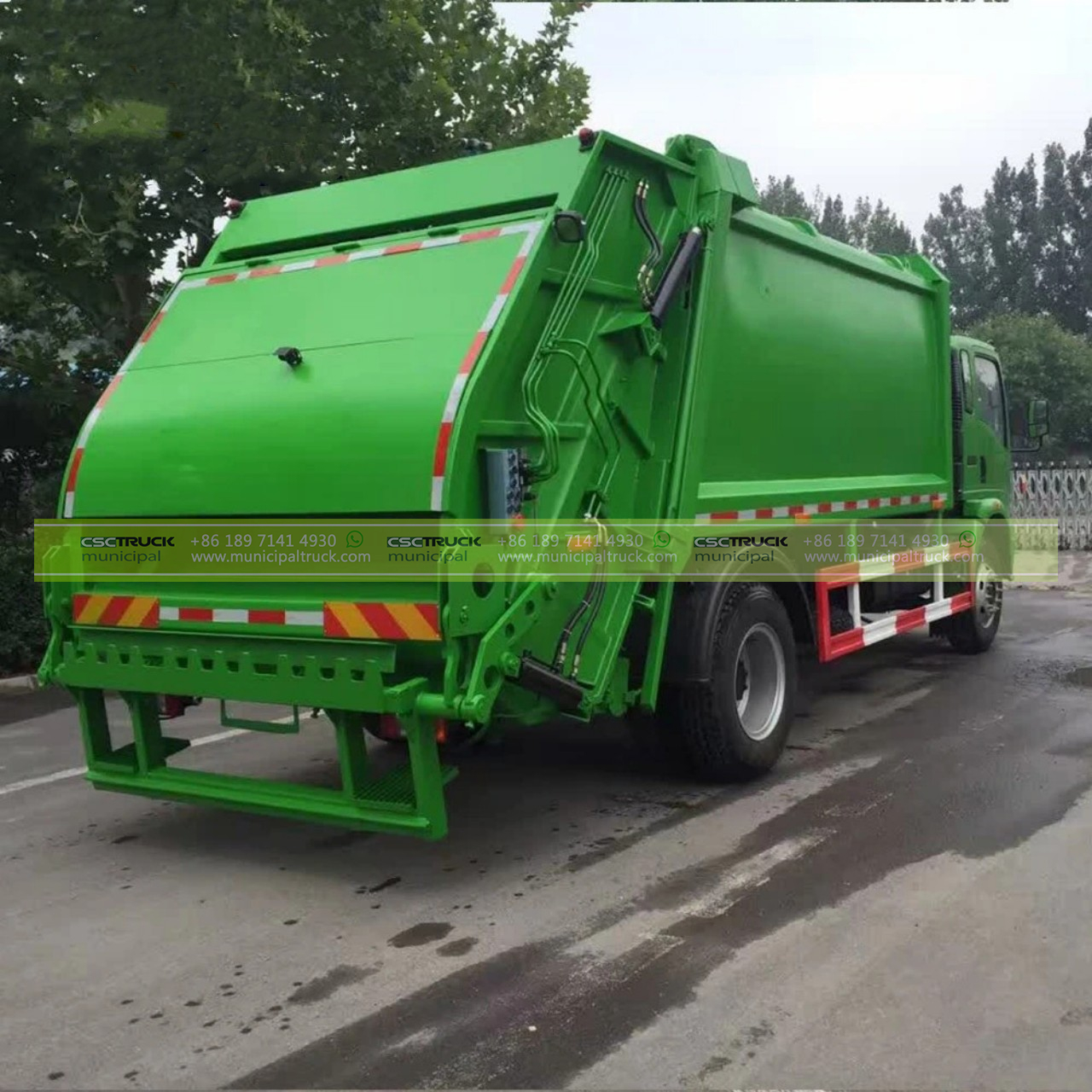
Conclusion
Compactor garbage trucks have revolutionized waste disposal by offering an efficient, cost-effective, and environmentally friendly solution to the challenges posed by urban waste. Their ability to compress waste, increase capacity, and reduce environmental impact has made them indispensable in modern waste management.
As cities continue to grapple with the ever-increasing amount of waste they produce, compactor garbage trucks will play a crucial role in streamlining waste disposal processes, reducing costs, and contributing to a cleaner, more sustainable future. With ongoing technological advancements, these vehicles are set to become even more efficient and environmentally friendly, making them an essential tool in the global effort to manage waste responsibly.
Contact us for this municipal truck or similar trucks: [email protected] Call us or What's APP us: +86 189 4292 3930

